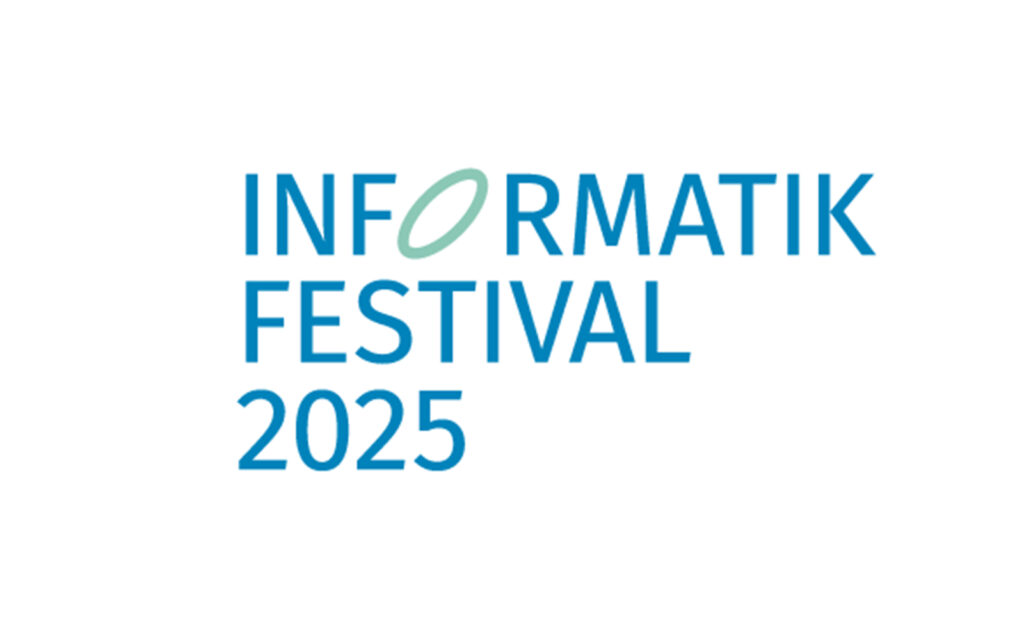FZI Live
Foresight in Theory and Practice (FORTIP 2025)
Workshop at the INFORMATIK Festival 2025 (55th annual conference of the German Informatics Society in Potsdam)
Companies are faced with the task of identifying relevant signs (e.g., weak signals, emerging topics, trends) in the market environment at an early stage and deriving added value for their strategy, business models, and products. If development scenarios are not considered in strategic planning, or are not considered to a sufficient extent, this can, in extreme cases, threaten the company’s existence. However, a lack of resources, insufficient expertise, a reluctance to change, or inadequate (IT) tools are just a few examples of why small and medium-sized enterprises (SMEs) find it challenging to establish suitable structures and processes.
Scientific institutions face similar challenges when it comes to aligning their research planning and, as a result, determining which competencies and topics need to be addressed in the future. At the same time, the use and methodology of foresight, for example, in business and society, represent a current and exciting field of research for science. Despite this potential, however, there are only a few scientific studies on this topic to date, suggesting possible research gaps in this area.
Therefore, the workshop “Foresight in Theorie und Praxis” is a forum to bring together stakeholders from companies and scientific institutions to discuss experiences and potential for cooperation in strategic foresight. In particular, the importance of computer science for the establishment and further development of a foresight process will also be considered. The following questions provide an orientation on the thematic focus of the workshop:
- What research approaches already exist in the field of foresight? Where is there a need for further research?
- How are research approaches currently being applied in practice? What are their distinguishing features, and where are their limitations?
- How is strategic foresight organized in companies? How does it differ in large companies and SMEs?
- How can strategic foresight be implemented in scientific institutions? Where are the differences from the corporate approach, and where are the similarities?
- How can digital technologies (e.g., IT applications, AI) support and improve strategic foresight? What resources and skills are required for this?
The workshop will present research approaches and practical reports on the research and/or application of foresight methods and technologies. This will be followed by an interactive session discussing opportunities, challenges, and current developments in the field of foresight in companies and science.
Target groups
The workshop is aimed at researchers and practitioners in the field of strategic foresight and foresight, as well as
- Specialists and managers from companies that integrate strategic foresight into their planning
- Consultants in the field of futurology and trend analysis
- Those responsible for innovation and technology management
- Decision-makers in politics and administration who develop future-oriented strategies
- IT experts and developers of digital foresight tools
- Scientists and students with an interest in foresight methods
Topics
- Methods of strategic foresight
- Application of foresight in companies
- Application of foresight in scientific institutions
- Digital technologies to support foresight (e.g., AI, big data, simulations)
- AI and foresight
- Simulation techniques
- Data analysis/management
- Scenario techniques
- Trend analysis
- Horizon scanning
- Innovation management
- Organizational and cultural challenges of strategic foresight
- Regulatory and ethical aspects of foresight
- Corporate strategy and foresight
- Risk management with foresight
- Best practices and practical reports
Important information and deadlines
- Contributions should not exceed the following length:
- Full paper: 10-12 pages
- Short paper: 6 pages
- Work-in-progress paper: 3-5 pages
- Practical contributions from industry: 3-5 pages
- Contributions may be written in English or German.
- Submissions must be made via easychair.org
- Submitted contributions will be reviewed and evaluated by at least two representatives of the program committee as part of a selection process. The program committee is composed of both researchers and practitioners.
- The selected submissions will be published in the Lecture Notes in Informatics (LNI) and presented by at least one author during the workshop.
Agenda
10:00 - 11:00 a.m.:
Keynote: “Keynote topic”
Markus Kustermann, Firma AG
12:00 a.m. - 2:00 p.m.:
Three parallel workshops:
“Workshop title”
“Workshop title”
“Workshop title”
Organizing Committee
Program Committee
This year, the workshop is being supported by a broad consortium whose partners will contribute their respective networks to the workshop:
- Transferzentrum für Digitalisierung, Analytics & Data Science Ulm
- Network for applied AI at the HTWK Leipzig
- Zentrum für künstliche Intelligenz Mecklenburg-Vorpommern, University of Rostock
- Technologietransferzentrum Digitale Intelligenz Oberfranken, TH Nürnberg
- Hochschule Bielefeld
- FZI Research Center for Information Technology, Karlsruhe
Note on the event:

